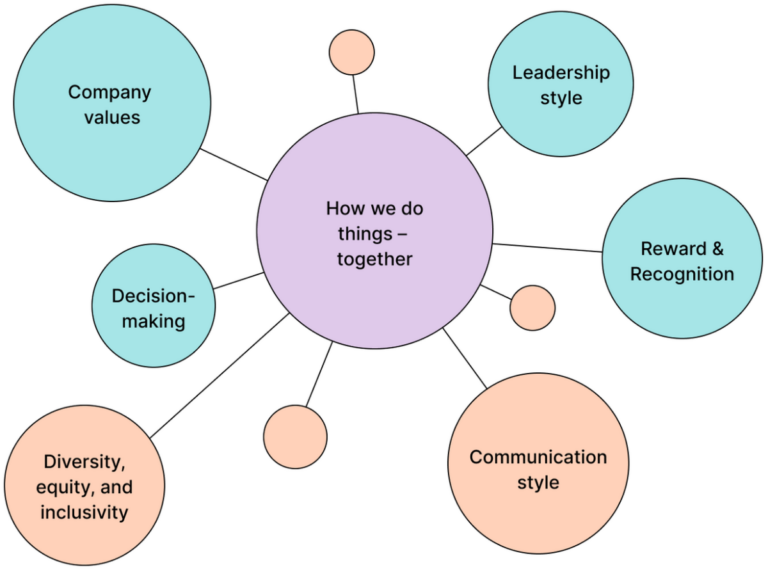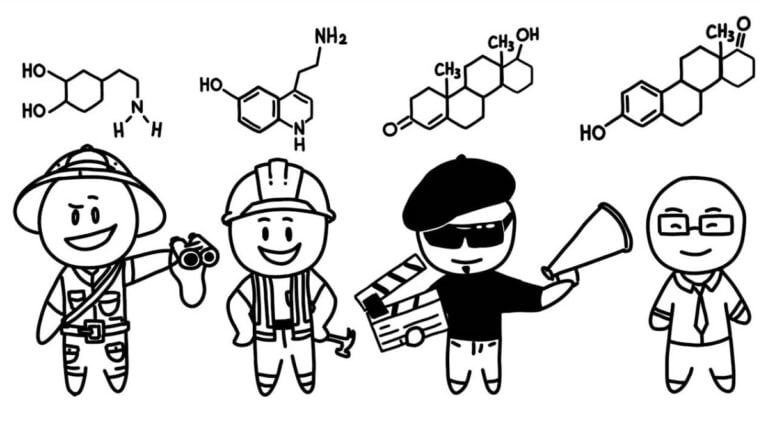Modern Russians view work as an opportunity to ensure stability, development and order. All these are characteristics of corporate culture. The company’s ability to create an effective team and maintain the involvement of its members in its activities depends on how developed they are and in what format they exist.
On the other hand, culture is a way to express yourself, show your uniqueness, attitude to the world and, through common goals and values, attract personnel, partners and investors. Therefore, understanding the laws by which corporate culture is formed and developed is today one of the prerequisites for successful business activities.
What is corporate culture
For a long time, scientists have been analyzing the behavior and interactions of people within an organization. From 1925 to 1932, a series of Hawthorne experiments were conducted at a plant in Illinois, USA, by Elton Mayo, a professor of industrial sociology at Harvard University. They showed that, in addition to established rules among workers, there are informal norms of behavior that affect labor productivity.
In 1939, the famous German and American psychologist Kurt Lewin, together with Ronald Lippitt and Ralph White, considered the idea of climate, a group atmosphere, as a factor influencing the development of a company. In the late 60s, the terms “culture” and “climate” began to be widely applied to theories of personnel management, and with the beginning of the 80s, the view emerged that internal culture is the real unifying force of the company, which can be measured and managed.
The director of employer brand development at VK said in one of her articles that an employee’s productivity does not depend on where his desk is or where he sits, but on his involvement and desire to do the most for his product or project.
How corporate culture is formed
One of the striking examples of a developed and distinctive corporate culture in Russia is the Yandex company. A democratic management style is practiced here; it is allowed to combine work with activities in other companies and bring guests, provided that they do not harm the work process.

The company provides employees with many training opportunities, as well as assistance when moving and settling into a new location. All this creates an attractive employer brand and allows Yandex to remain competitive even in conditions of personnel shortage.
The foundations of corporate culture are laid by its leader, forming it from his own values, attitude towards business, people and the world. Therefore, the first step is to understand your own goals and motives, fixing the image of the result that will become a guideline for the company.
Having formulated the mission, you can begin to involve the team in its implementation. At this stage, it is important to be interested in the team’s ideas about how the work process and communications should be structured. Common interests and priorities are the foundation on which corporate ethics will then be based. Also at this stage, the company’s symbols and its visual design are created – logo, corporate colors, fonts, office style, uniform. Internal corporate traditions are being introduced: informal communication over morning coffee, holding competitions, joint trips to nature, sports or charity events.
To maintain a high level of corporate culture, it is necessary to periodically conduct trainings and resource meetings based on common values. For beginners, it’s worth considering a high-quality onboarding system that allows you not only to master working algorithms, but also to become imbued with the unique spirit of the company.
The last stage is monitoring the degree of employee satisfaction, compliance of the company’s actual activities with the given course and, if necessary, actions to eliminate misunderstandings and disagreements.
How modern companies can develop corporate culture
Maintaining and developing corporate culture, especially in times of crisis and change, requires the ability to adapt to a changing reality and choose measures to engage and support employees that meet current challenges.
Today, most progressive companies practice well-being programs that are aimed at increasing the overall level of well-being of employees. These could be measures to take care of psychological safety, opportunities for training and development, accessible activities in the field of health, sports and culture, and, of course, the organization of a comfortable and pleasant workplace.
To understand how satisfied the team is with the state of affairs in the company, it is also important to constantly collect feedback and analyze the data obtained. Since any development involves changes, they need to be introduced gradually, with minimal stress for employees. This is facilitated by convincingly positioning innovations in terms of the benefits that the team will receive.
An interesting example of a company whose corporate culture is initially focused on the immediate demands of the market is Rostelecom. Its flexibility is due, on the one hand, to pronounced business etiquette and traditions, strict regulations in business communication, and on the other, to situational work on the “challenge-solution” principle, which allows one to find optimal options for solving specific problems.
Functions performed by corporate culture

Other functions of corporate culture include the following:
- Involving. Shared values and principles help employees feel part of a team and work together to achieve common goals.
- Management and system-forming. Corporate culture helps to form internal norms and rules and establish work processes.
- Strengthening organizational effectiveness. There are fewer conflicts between employees focused on achieving common goals, better communication, and mutual assistance and support. All together has a positive effect on the pace and quality of work.
- Adaptive. Corporate culture helps new employees navigate the company more easily, integrate into the team more easily, quickly understand their area of responsibility and identify key team members with whom they will interact.
- Adaptive. In an unstable market, a common culture serves as a support that makes it easier to navigate what is happening, analyze and propose solutions.
- Competitive. A developed corporate culture allows the company to retain valuable personnel and attract new ones, as well as remain a sought-after supplier of goods and services, despite the abundance of similar offers on the market.
Types of corporate cultures
There are different typologies of corporate cultures. Jeffrey Sonnenfeld, professor of management practice at the Yale School of Management, defines types by their activity in the market and ability to adapt to its challenges.
The typology proposed by American researchers Kim Cameron and Robert Quinn is based on the management style, the authority of the leader, his ability to set priorities and attitude to the needs of the team.
Business consultant and author of books on corporate culture and leadership Terrence Deal and management consultant Allan Kennedy define culture types by their response to external circumstances: proactive, flexible or conservative.
Why corporate culture should be based on values

The various corporate cultures of Russian companies are characterized by common value guidelines:
- Independent, but at the same time loyal to the employer, employees are highly valued;
- Individualism is considered more effective, but cooperation is more common;
- Priority is given to managers with high personal effectiveness rather than with developed management skills.
An initial search for employees with a similar cultural code will help to form a team with a high degree of loyalty.
The values on which corporate culture is based give meaning to the functioning of the business. They provide order and discipline, give impetus to development, build team spirit, trust and partnership, and allow you to build relationships with society through common points of contact.
How to evaluate the effectiveness of corporate culture
Since working on corporate culture requires time, intellectual and financial investments, it is important to be able to monitor its effectiveness according to the following criteria: employee attitudes towards each other, towards managers, the company and contractors (clients, partners). There is a large selection of methods that allow you to find out the attitude of team members towards the employer using the HR department. This includes conducting surveys, in-depth and exit interviews, focus groups and using behavioral monitoring scales.
Measuring the effectiveness of corporate culture allows you to identify weaknesses that can be strengthened, increasing employee motivation and engagement. There are various services that allow you to assess the degree of effectiveness of corporate culture tools and employee engagement. The following metrics can be used to measure:
- general performance indicators;
- staff turnover percentage;
- indicators of employee interaction with the company’s website, social networks and chats;
- number of applicants coming on the recommendation of employees.
If the assessment reveals inconsistencies between the company’s values and the values of the employees or the actual path the company is following, it is important to begin the process of cultural transformation.











